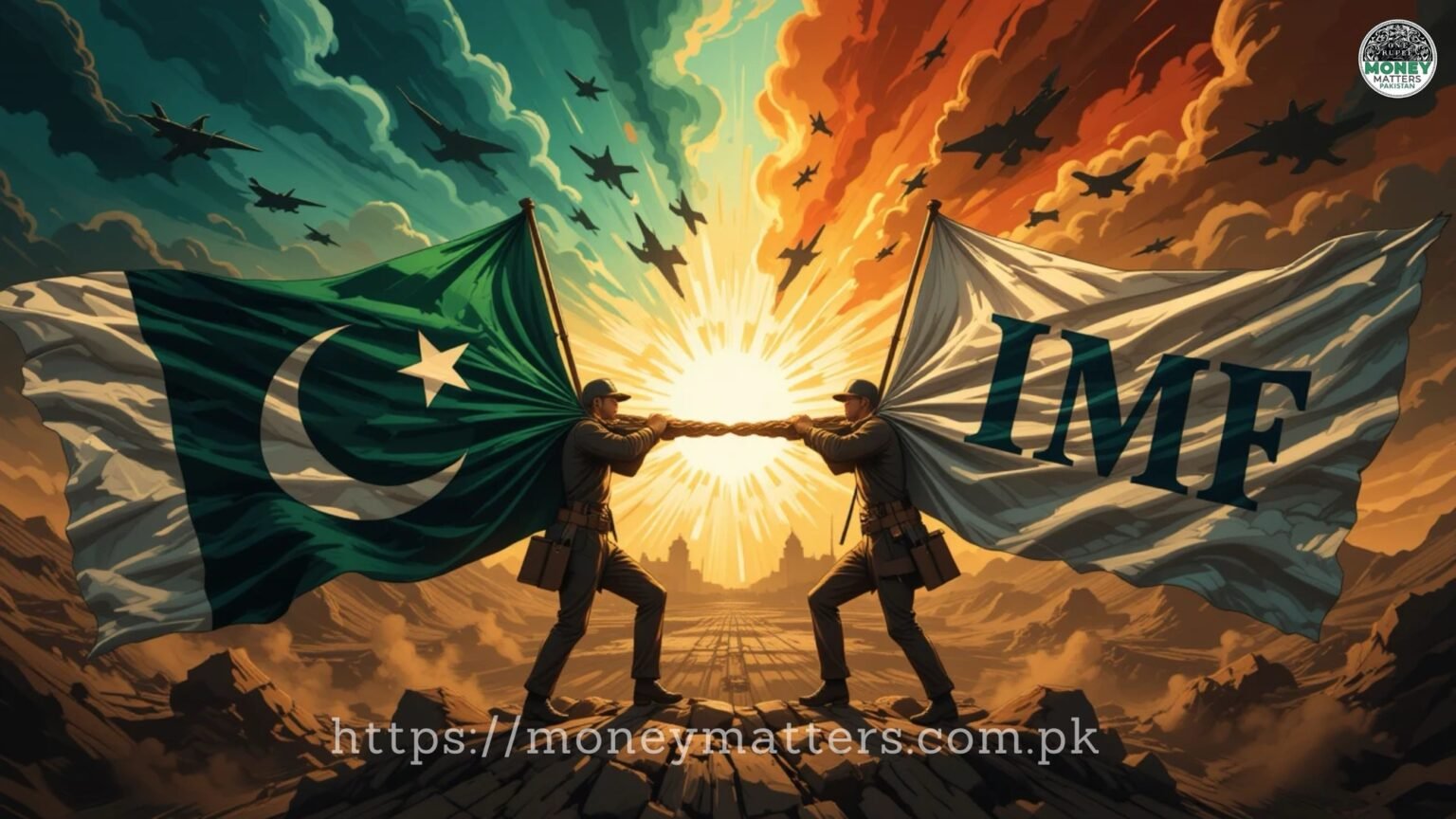The global lender imposes 11 additional policy requirements, totaling 50, as concerns mount over Pakistan’s economic management and escalating India conflict.
Key Takeaways:
i) The IMF has introduced 11 new policy conditions for Pakistan to access its next bailout tranche, bringing the total to 50, signaling increased apprehension over the nation’s economic stability.
ii) Rising geopolitical tensions with India, particularly increased defense spending, are now a significant factor in the IMF’s assessment of risks to Pakistan’s bailout program.
iii) The new conditions span fiscal, governance, social, monetary, financial, energy, and trade sectors, including strict budget adherence, agricultural tax reforms, and liberalization of used car imports.
Islamabad, Pakistan – A report by Bloomberg News has highlighted the International Monetary Fund’s (IMF) increasingly firm stance towards Pakistan’s economic challenges. Titled “IMF Tightens Conditions for Pakistan to Get Fresh Loans,” the article, indicates that the IMF has imposed a further 11 policy requirements on Islamabad as a prerequisite for the disbursement of its next loan installment. According to the report, this escalation brings the total number of conditions Pakistan must meet to a substantial fifty.
This development underscores the global lender’s growing unease, not only concerning Pakistan’s persistent economic vulnerabilities but also in light of heightened military tensions with neighboring India.
Adding to the complexity, reports suggest that IMF staff have expressed alarm over the Pakistani government’s intentions to divert funds from development projects towards defense spending following recent border escalations with India. According to the Bloomberg analysis, suggesting the IMF views this as a matter of economic indiscipline and a reflection of the difficult choices Pakistan faces amidst its ongoing crisis.
The newly imposed reforms cover a wide spectrum of economic and governance areas. These include the critical requirement for the Parliament to approve the upcoming Rs 17.6 trillion federal budget in strict adherence to IMF benchmarks. Furthermore, the IMF is pressing Pakistan’s provinces to finally implement long-evaded agricultural income taxes, a move that could significantly impact the country’s powerful feudal structure. A long-awaited governance roadmap must also be published, outlining the government’s strategy beyond 2027 for the financial sector, detailing the institutional and regulatory environment from 2028 onwards.
In a move with implications for consumers and the automotive sector, the IMF has also directed Pakistan to ease import restrictions on used cars, extending the allowable age from three to five years by July 2025. This specific condition is seen as symbolic of the IMF’s detailed oversight of Pakistan’s economic policies.
These conditions also include the issuance of notifications for annual electricity tariff rebasing by July 1, 2025, and semi-annual gas tariff adjustments by February 2026 to ensure cost recovery in the energy sector. Additionally, Pakistan must make permanent the captive power levy ordinance aimed at shifting industrial energy use to the national grid by the end of May. The removal of the Rs 3.21 per unit cap on the debt servicing surcharge on electricity bills by June is another key condition. The government is also required to prepare a plan by the end of 2024 to phase out all incentives related to Special Technology Zones and other industrial parks by 2035. Moreover, out of the total Rs 17.6 trillion budget, Rs 1.07 trillion must be allocated for development spending. The IMF has also emphasized the need to maintain the real purchasing power of the population by providing an annual inflation adjustment to the unconditional cash transfer program.
The IMF’s increased demands reflect a growing concern about Pakistan’s ability to adhere to fiscal discipline and implement necessary structural reforms, especially against the backdrop of regional instability. The stringent conditions aim to ensure that the bailout program’s objectives are met and that Pakistan takes concrete steps towards long-term economic sustainability.




